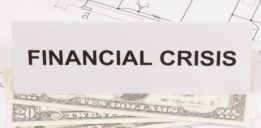Millennials Partying in Parents’ Basements Like It’s 1940
It’s tough for today’s Millennials, just as tough as it was for young people during the Great Depression. According to the most recent data, the percentage of young Americans living at home is at its highest level in 75 years. This is going to have a major impact on the already-fragile U.S. economy.
While President Barack Obama waxes eloquent about the rebounding U.S. economy and job growth, the number of Millennials (those between the ages of 18 and 24) who are living with family members is on the rise. And this number has been soaring throughout the economic recovery.
In 2005, just before the Great Recession, the number of Millennials living with their parents or a family member was at approximately 33%. Today it’s at 40%, which is the largest percentage since 1940, when the number stood at a record 40.9%; the year after the Great Depression ended. (Source: “Percentage of Young Americans Living With Parents Rises to 75-Year High,” The Wall Street Journal, December 21, 2016.)
For comparison’s sake, the number of young Americans living with their parents hit a low of 24.1% in 1960. During the halcyon days of Ronald Reagan, George H. W. Bush, and Bill Clinton, the rate was around 31% and 33%.
Historically, when the U.S. economy comes out of a recession, the number of young Americans living at home declines in step with an improving economy. Not so this time. Today’s young Americans are saddled with record levels of student loan debt, barely-there wage growth, and high unemployment and underemployment. It doesn’t help that the (on-paper) improving U.S. economy has also led to higher rents.
Millennials Being Forced to Live at Home Hurts the U.S. Economy
Despite the so-called economic recovery, tight credit, high underemployment, and record levels of student loan debt is hurting the U.S. economy.
Since 2006, the number of American adults under 30 has grown by five million. Over the same period, the number of households for that age group increased by just over 200,000. Add it up, and you’ve got fewer young Americans buying their first house or condo, thus fewer buying appliances and furniture or doing renovations and repairs.
In addition to putting off buying a home, younger Americans are also choosing to get married and have children much later than people did in previous generations.
And the timing couldn’t be worse; the millennial generation is the largest in U.S. history, and it is expected to be the main driver of U.S. economic growth over the next few decades.
On the surface, it might not appear that the number of young Americans living at home will have that much of an impact on the U.S. economy. But the housing sector’s combined contribution to gross domestic product (GDP) averages 15%—18%. This doesn’t include purchases that get made when you first buy a home, including new appliances, furniture, dishes, paint, furnishings, lawn equipment, etc.
Living at home and paying off debt—instead of a mortgage—hurts the real estate recovery, which is still seven percent below the pre-financial crisis level. And a weak U.S. housing market is, as we have seen, a millstone on U.S. economic growth. In addition to consumer spending, the house-buying young Americans are also responsible for helping create construction jobs and other housing-related jobs.
At the same time, it’s not as if young Americans should take on massive amounts of debt and financial risks they cannot afford simply to keep the economy chugging along. Moving out on your own and failing to live within your means could result in financial ruin and, subsequently, moving back into your parents’ house and living with younger siblings.
The only way that young Americans can move out of their parents’ homes and start their lives on their own is if the economy is growing and they can find secure, well-paying jobs. The previous administration was unable to achieve this. Time will tell if Donald Trump can.






